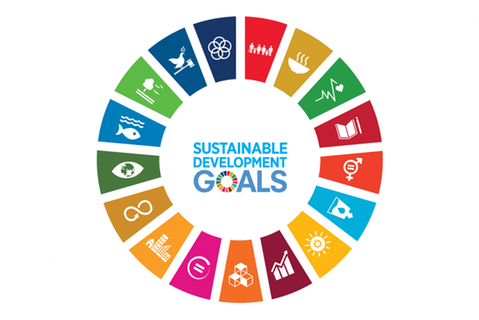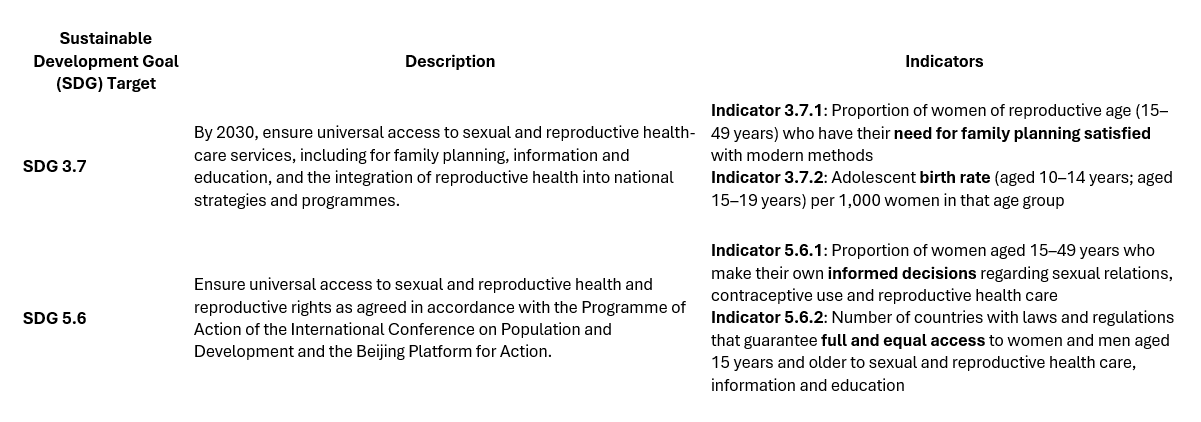Journal Highlight: Contraception and Reproductive Medicine
Published in Social Sciences, Public Health, and Paediatrics, Reproductive Medicine & Geriatrics

 Contraception and Reproductive Medicine, an international, open-access journal published by BioMed Central, focuses on advancing the understanding of contraception, family planning, and sexual health, in alignment with Sustainable Development Goals 3 (SDG3) and 5 (SDG5).
Contraception and Reproductive Medicine, an international, open-access journal published by BioMed Central, focuses on advancing the understanding of contraception, family planning, and sexual health, in alignment with Sustainable Development Goals 3 (SDG3) and 5 (SDG5).
Sustainable Development Goals 3 & 5

Progress on targets 3.7 and 5.6 are mixed. Whilst we have seen an increase of more than 75 million women using modern methods of family planning since 2015, some 270 million women lack access to modern contraceptive methods, particularly those in low- and middle-income countries (LMICs). Additionally, only 56.3 per cent of women between the ages of 15 and 49 who are married or in a union have full decision-making power over their sexual and reproductive health and rights, according to data from 78 countries. The lowest level of autonomy was reported in sub-Saharan Africa, at 36.8 per cent, compared with 87.2 per cent in Europe. The global adolescent birth rate among girls between the ages of 15 and 19 however has consistently fallen between 2000 and 2024, and is projected to decline to 34.8 per 1000 by 2030. To meet these targets by 2030, substantial investment is needed to address the associated global challenges, with a particular focus on vulnerable groups and regions.
Contraception and Reproductive Medicine and the SDGs
Contraception and Reproductive Medicine provides a platform to address critical issues affecting contraception, family planning and sexual health across diverse populations, with an emphasis on LMICs. Acknowledging the importance of evidence-based approaches to enhancing health outcomes, the journal features a wide range of study designs including scoping reviews, qualitative research, and implementation science, alongside case reports - all with an emphasis on research of global relevance and working towards achieving the SDG targets.
 "For many years, Contraception and Reproductive Medicine has been focusing on advancing reproductive health around the world," Editor-in-Chief Dr Donna Shoupe explains. "The emphasis has been on promoting education and equal access to all modern contraceptive methods, supporting research increasing knowledge in reproductive medicine, and reducing complications and misuse."
"For many years, Contraception and Reproductive Medicine has been focusing on advancing reproductive health around the world," Editor-in-Chief Dr Donna Shoupe explains. "The emphasis has been on promoting education and equal access to all modern contraceptive methods, supporting research increasing knowledge in reproductive medicine, and reducing complications and misuse."
Research Highlights
- Promoting SRHR in LMICs: Spatial modelling of the shared impact of sexual health knowledge and modern contraceptive use among women with disabilities in Africa
- Clinical trial to assess risk: The use of a menstrual cup as a risk factor for displacement of intrauterine devices: a case-control study
- Exploring male contraception: Interest in new methods of “male contraception” in survey of people with a prior vasectomy in the United States
- Abortion access and reproductive health rights: Parallel paths: abortion access restrictions in the USA and Iran
Closing the Gap
As we look ahead to the 2030 deadline for achieving the SDGs, it’s clear that access to contraception is not just a health issue but a vital key for progress across education, gender equality, and poverty reduction. The research and insights captured in Contraception and Reproductive Medicine underscore the transformative power of reproductive autonomy. By investing in contraceptive access, we invest in a future where people can make informed choices, communities can thrive, and nations can build more equitable and sustainable societies.
Check out more research supporting the SDGs and global access to contraception and reproductive health services in Contraception and Reproductive Medicine here.
Follow the Topic
-
Contraception and Reproductive Medicine

This journal is designed to promote the advancement of contraceptive technology and general reproductive medicine particularly in the areas of education, effectiveness, safety, research interest, improved or new technologies, non-contraceptive benefits, and long-term health.
Related Collections
With Collections, you can get published faster and increase your visibility.
Reviews of Contraception in Healthcare
In this collection, we welcome reviews covering a range of topics related to contraception in health care including:
• Contraceptive failure: Global Perspectives.
• Access and information regarding contraception in rural areas
• Contraceptive methods in adolescence.
• Contraception in young women.
• Contraceptive use during the menopausal transition.
• Contraceptive methods, demands and future development.
• Contraception Selection, Effectiveness, and Adverse Effects.
• Long-Acting Reversible Contraception.
• Safety and Efficacy of Intrauterine devices.
• Hormonal and natural contraceptives: on efficacy and risks of different methods for an informed choice.
• Emergency contraception.
• Postpartum contraception.
• Contraceptive use among women with medical conditions: Factors that influence method choice.
• Contraceptive options for women living with HIV.
• Contraceptive Strategies in Women with Heart Failure or With Cardiac Transplantation.
• Male contraceptive advances.
• Quality of contraceptive services.
This Collection supports and amplifies research related to SDG 3, Good Health and Well-Being.
Publishing Model: Open Access
Deadline: Jul 24, 2026





Please sign in or register for FREE
If you are a registered user on Research Communities by Springer Nature, please sign in